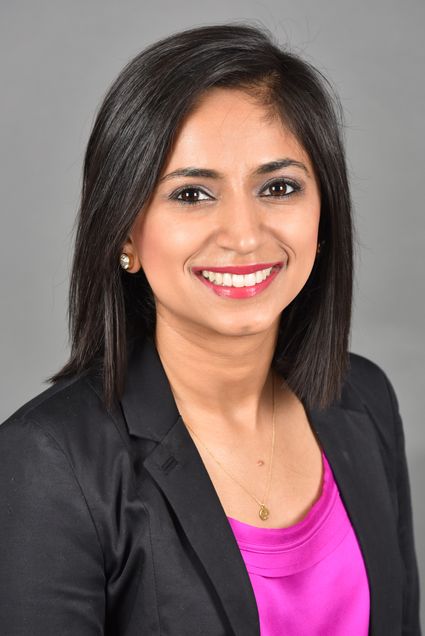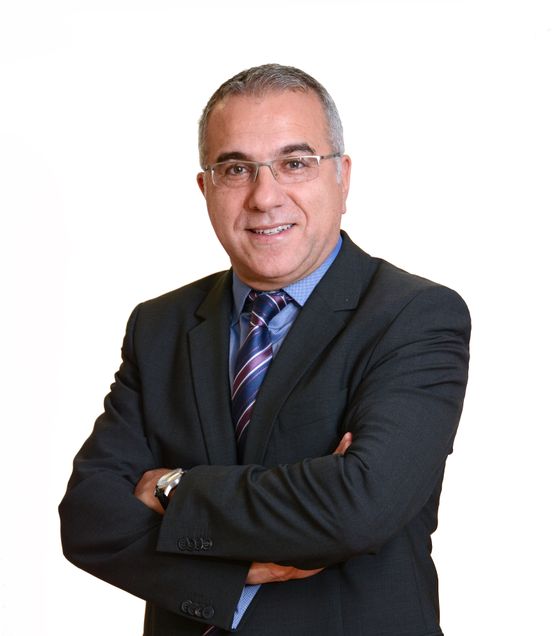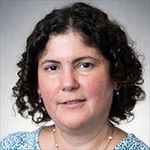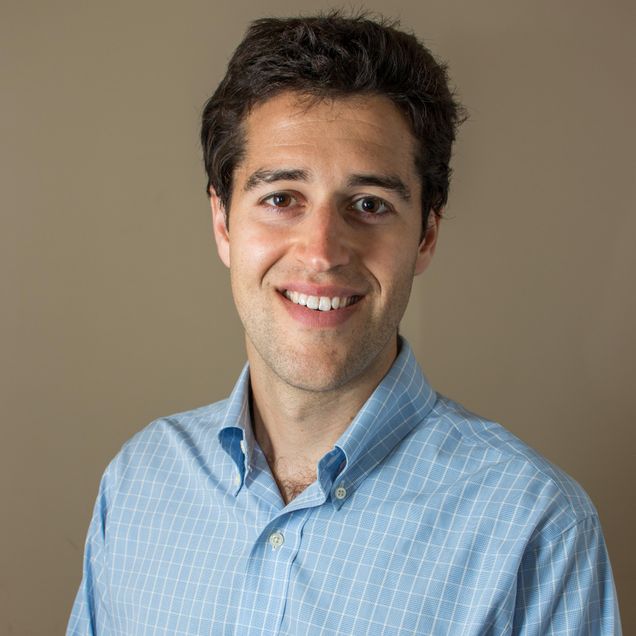Diversity Advisory Group
Established in 2016, the Diversity Advisory Group comprises individuals from the three schools on the medical campus, as well as the hospital. The purpose of the Advisory Group is to serve as a bi-directional communication channel between the offices in each of the three schools, and their respective domains. The group serves as a sounding board to discuss diversity-related matters on campus, and to provide balanced guidance in this space.
In addition to the deans, please feel free to communicate with any of the members of the Advisory Group listed below regarding your thoughts and/or suggestions regarding diversity-related matters on campus.
Members

Yachana Kataria, PhD, DABCC, FADLM
Yachana Kataria, PhD is an assistant professor of pathology & laboratory medicine at Chobanian & Avedisian School of Medicine. Before arriving at the university, Dr. Kataria completed a fellowship in clinical chemistry and was the assistant director of clinical chemistry at Boston Children’s Hospital.
Dr. Kataria also serves as medical director of clinical chemistry laboratories at Boston Medical Center, focusing on bringing public health to the clinical laboratory. Leveraging data analytics in laboratory medicine can offer valuable insights for patient care and population health. Her research, particularly during the COVID-19 pandemic, assessed the durability of seroimmunoglobulins and she also studies risk factors for multiple myeloma. Laboratory medicine plays a crucial role in healthcare, advocating for partnerships with data analytics to support value-based care, optimize patient outcomes and reduce costs.

Jana Mulkern, EdD
Dr. Mulkern joined BU in 2009 as the university’s first Educational Technologist to provide edtech consulting and training the BUMC community. Now director of medical campus educational technology, she leads a team which supports, consults and trains on edtech tools and platforms as well as curricular evaluation and research platforms. They also support educational labs, as well as video and podcasting projects in the Godley Digital Media Studio.
Dr. Mulkern is an avid supporter of DEI initiatives in work and home communities. She participated on the pre-clerkship subcommittee DEI working group, IS&T allies and advocates teams site, and she created an advocacy, activism and ally tools channel for her department Teams site. She’s on the planning committee for the Provost Workshop on Accessibility and is in her 14th year serving on the McCahan Education Conference planning committee. She is active on her city’s Citywide PTO DEI subcommittee, as well as its DEI Policy Working Group where she is consulting with public school administration on more strength-based and inclusive policies in their K-12 student handbooks. Prior to joining Boston University, Mulkern led corporate training departments in corporate and healthcare staffing industries. She then worked several years providing consulting services and facilitating educational workshops in management, organizational change, teamwork, sales, and technology for large corporate, healthcare and academic institutions. She holds a Doctorate of Education in Educational Leadership and Policy Studies in Higher Education from Boston University, an MS in Training & Organizational Development from Lesley University’s School of Management, and a BA in Journalism with a minor in Sociology from University of Massachusetts, Amherst.

Ali Guermazi, MD, PhD, MSc
Ali Guermazi, MD, PhD, MSc is a professor of radiology and medicine, director of the Quantitative Imaging Center, and assistant dean of D&I at Chobanian & Avedisian School of Medicine. He is the chief of radiology at the VA Boston Healthcare System. Prior to joining Boston University, he was director of the Osteoporosis and Arthritis Research Group (OARG) at University of California at San Francisco (UCSF) and then director of clinical research at Synarc, Inc. in San Francisco. Before that, Dr. Guermazi spent 12 years in Paris and worked mainly at the prestigious Saint-Louis University Hospital. Dr. Guermazi obtained his MD from Sfax University (Tunisia), then his specialty from Rene Descartes University in Paris (France) and his PhD from Jikei University in Tokyo (Japan). He is Visiting Professor at Jikei University in Tokyo and the Prefectorial University in Kyoto, Japan.
Dr. Guermazi was deputy editor of Radiology for almost 7 years (2013-2019). He is currently Editor-in-Chief of Skeletal Radiology, the official journal of the International Skeletal Radiology and also the President of the International Society of Osteoarthritis Imaging since 2019.
Dr. Guermazi’s interest is in musculoskeletal diseases. Of particular note are his scientific contributions in the diagnosis, incidence and disease progression assessment of osteoarthritis using MRI. His work has focused on identifying structural risk factors for developing and worsening osteoarthritis. Dr. Guermazi has been involved as an MRI reader for the past 25 years in several large U.S. studies including the Health Aging and Body Composition (Health ABC) study, the Boston Osteoarthritis Knee study (BOKS), the Multi-center Osteoarthritis STudy (MOST), the Framingham study, Osteoarthritis Initiative (OAI), and other large NIH-funded studies, as well as several Pharmaceutical-sponsored clinical trials.
Dr. Guermazi is also interested in interventional nonvascular radiology and imaging in sports medicine where he is The Expert Radiologist to the International Olympics Committee and Paris Saint-Germain Football team. Dr. Guermazi is the author of over 670 peer-reviewed PubMed publications, 12 books, over 50 chapters and investigator on numerous research grants related to MRI reading for osteoarthritis. His h-index is 111. He is the recipient of many awards among these the OARSI Excellence in Clinical Research in 2018 and the RSNA Margulis Award for the Best Paper in 2022. He has been invited to lecture in more than 70 countries world-wide.

Joseph Zaia, PhD
Diversity, Equity, Inclusion and Accessibility
I serve as Chair of the Graduate Medical Sciences Diversity, Equity and Inclusion Steering Committee. Here is a statement that I developed on the need for the school to address the diversity deficit in its basic biomedical science departments.
The school needs to address the deficit of URM faculty in the basic biomedical sciences in order to meet its mission
The lack of faculty diversity in basic biomedical sciences harms these fields. There is compelling evidence that the fear of deviating from current faculty recruitment practices that fail to value diverse experiences and perspectives inhibits progress in basic biomedical research. One study of 1.2 million PhD students describes the Diversity-Innovation Paradox (https://doi.org/10.1073/pnas.1915378117) whereby higher rates of scientific novelty and impact are generated by PhD students from historically underrepresented groups, yet these same students are less likely to succeed in academic careers.
This reinforces stratification in academic careers that discounts the roles of diversity in innovation and helps explain the underrepresentation of some groups in academia. In order to remain competitive, the school must focus its faculty recruiting efforts to achieve inclusive excellence to insure diverse leadership in the coming decades.
Moving the school basic biomedical sciences towards the goal of inclusive excellence. According to the AAMC (https://www.aamc.org/data-reports/faculty-institutions/interactive-data/us-medical-school-faculty-trends-percentages), it will take centuries, at the present rate, to reach parity in basic biomedical sciences at the full professor level. This representation gap results from institutional cultures that lack transparent commitments to diversity, inclusion and equity during faculty recruitment.
The school must cultivate institutional culture change and enhance its biomedical research workforce diversity at the faculty level. Low diversity of faculty from underrepresented groups, compared with the available talent pool, results in part from the high attrition of academic researchers from these groups (https://www.ncbi.nlm.nih.gov/pmc/articles/PMC5153246/). However, reports (https://www.ncbi.nlm.nih.gov/pmc/articles/PMC5153246/) on faculty cluster hires in academia indicate that the cohort model is an effective strategy for improving faculty diversity. As a result, there is a compelling argument that the school will most effectively diversify its biomedical sciences faculty through the cohort hiring model. The idea is for the school to build a self-reinforcing community of basic biomedical scientist who are committed to diversity and inclusive excellence. The cohort model is supported by evidence (https://press.princeton.edu/books/hardcover/9780691176888/the-diversity-bonus) that diversity strengthens scientific discovery through improved innovation, problem-solving, evaluation, prediction, evaluation, and verification. The faculty cohort model aligns with the NIH UNITE (https://www.nih.gov/ending-structural-racism/unite) initiative goals to establish a diverse and equitable culture in biomedicine and reduce barriers to racial equity in the biomedical research workforce.
The school must build a culture of inclusive excellence in basic biomedical sciences to remain competitive with other major biomedical research institutions. Diversity does not come at the expense of excellence; rather, diversity drives excellence. Looking ahead, the business as usual approach whereby faculty are recruited solely based on publications in high profile journals and K99 funding as evidence of potential for success in winning funding as independent investigator fails to address the emerging importance of diverse viewpoints in addressing the heath needs in the coming decades. To address persistent health disparities and issues related to minority health inequities, NIH funding initiatives will increasingly require diverse academic research teams.

Vincent Smith, MD
Dr. Vincent C. Smith, MD, MPH is division chief of newborn medicine at Boston Medical Center (BMC) and professor of pediatrics at Boston University Chobanian & Avedisian School of Medicine. Dr. Smith is a graduate of Texas A&M University, Stanford University School of Medicine, and the Harvard School of Public Health. He trained in pediatrics at Children’s Hospital and Boston Medical Center in the Boston Combined Pediatric Residency Program. He then completed a fellowship in neonatal-perinatal medicine through the Harvard wide program, a collaboration of Beth Israel Deaconess Medical Center, Brigham and Women’s Hospital, Massachusetts General Hospital, and Boston Children’s Hospital. He also completed a fellowship in health services research at Children’s Hospital. Dr. Smith serves as the medical director for the American Academy of Pediatrics’ Fetal Alcohol Spectrum Disorders Program. He is an active member of the Massachusetts Medical Society and Society for Pediatric Research. He is also a former member of the National Perinatal Association Board of Directors. In addition to parental NICU discharge readiness, his professional interests also include families affected by substance use and medical care for LGBTQIA+-headed families.

Marisol Lopez, PhD
Dr. Marisol E. Lopez is an assistant professor in the department of pharmacology, physiology & biophysics at Boston University Chobanian & Avedisian School of Medicine. She teaches physiology to dental, medical and graduate students. Her scholarly research interests include the barriers students from underrepresented groups face entering and persisting in higher education, the importance of sense of belonging on student retention, the effects of pathway programs developed to increase diversity, and investigating the contribution of legislation to racial disparities in higher education. Dr. Lopez is committed to increasing the diversity in STEM and healthcare professions through her teaching, scholarly work, and community involvement. She is an inclusive educator and strives to provide a learning environment that is equitable and accessible to students of diverse backgrounds. She contributes to diversity, equity, inclusion, and accessibility (DEIA) work in her department, institution, professional societies, and the community.

Ezra Cohen, MD
Ezra Cohen, MD is a Clinical Associate Professor of Pediatrics in Ambulatory Care Services at the Chobanian & Avedisian School of Medicine. As a doctor, he has received two awards for his outstanding performance and care of children during his residency and fellowship: the Mass General Hospital for Children Teaching Award and the Zeljko Nikolic Award. Outside of teaching and tutoring, he lectures on treating and diagnosing pediatric musculoskeletal disease. He is licensed in Pediatric Advanced Life Support and Basic and Advanced Cardiac Life Support.